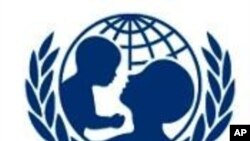The Zimbabwean government and the United Nations Children's Fund have launched a cash transfer program to help vulnerable families with monthly payments of US$20 or more as a means of relieving households headed by orphans in particular.
The Harmonized Social Cash Transfer Program aims to assist households determined to be extremely poor and without an income provider with monthly cash payments for food, education and health care. A pilot program was launched earlier this year in Goromonzi, not far from Harare in Mashonaland East province, covering about 100 families.
Harare and UNICEF have allocated US$10 million to the program, with other partners.
Officials said the national program will start in July in districts including Makoni, Kariba, Chivi and Rushinga targeting some 20,000 families. In the next two years 55,000 families in the country's 30 poorest districts will receive such assistance.
Patrick Makokoro, director of the Goromonzi Project for the relief of orphaned and vulnerable children, told VOA Studio 7 reporter Tatenda Gumbo that cash relief is appropriate for such poor communities.
Elsewhere, Kwekwe City Council cut off water supplies to Ziscosteel over nonpayment of some US$5.6 million, about six months after Essar Africa Holdings partnered with Harare to revive the steel manufacturing complex in Redcliff, Midlands province.
Kwekwe Mayor Shadreck Tobaiwa said water was cut on Wednesday following threats from the Zimbabwe National Water Authority to disconnect water to the town itself in connection with its overdue accounts to the state-operated authority.
Tobaiwa said water will be restored Friday or Saturday under an agreement between the water authority, Ziscosteel management and the municipality to settle debts as soon as the steelmaker’s major shareholders launch major operations.
Tobaiwa told VOA Studio 7 reporter Gibbs Dube that the Ziscosteel started running up a backlog of water bills when the company financially collapsed in 2008.





